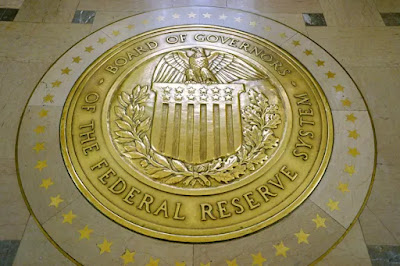LONDON - Stock markets sank further in Asia and faltered in Europe on Tuesday, with banks sliding again on contagion fear after the collapse of two regional US lenders.
The dollar firmed before key US inflation data, having tumbled Monday on concern the Federal Reserve could be forced to cut rates to halt markets turmoil.
The sudden failure of Silicon Valley Bank (SVB) on Friday, followed by Signature Bank two days later, sparked heavy market losses worldwide on fears of a domino effect that could heighten recession risks.
Asian equities tanked Tuesday after Wall Street suffered another punishing selloff, particularly for midsized banks First Republic, KeyCorp and Zions Bancorp.
Oil prices tumbled further with traders concerned about the demand outlook caused by a possible recession.
Europe's markets flickered between losses and gains as the morning progressed, with gloomy news from banking giant Credit Suisse grabbing traders' attention.
SOME SENSE OF CALM
"There was a sense some calm had been restored to markets after a bruising few sessions," said AJ Bell investment director Russ Mould.
"While the immediate fallout from the SVB collapse may have been contained for now, the edginess around the banking sector is not helped by the latest revelations from Credit Suisse as it identified material weaknesses in reporting controls."
Shares in the scandal-hit Swiss bank dived another five percent in Zurich, having struck a record low the previous day.
Credit Suisse acknowledged Tuesday that it had uncovered "material weaknesses" in its internal controls over financial reporting for 2021 and 2022.
The lender revealed the news in its annual report, which was delayed following queries from US regulators regarding its books.
"Credit Suisse is always in the emergency room when it comes to any market crisis, and today's news really intensifies the worries," noted IG analyst Chris Beauchamp.
"It's a bank that can never seem to get its house in order."
REVERBERATIONS
The rest of Europe's banking sector continued to languish in the red.
Shares in French lender Credit Agricole dived 1.2 percent and rival Societe Generale lost 1.1 percent.
Germany's Commerzbank dropped 0.4 percent and Deutsche Bank shed 0.6 percent.
In London, HSBC fell 1.3 percent one day after it bought SVB's UK division for a nominal £1 ($1.2).
"Bank shares globally continued to feel the reverberations from the fallout from the Silicon Valley Bank issue, with general sentiment weakening as a result," said Richard Hunter, head of markets at Interactive Investor.
The fast-moving crisis has forced US authorities to immediately pledge support for other lenders and depositors.
Bloomberg News reported that about $465 billion had been wiped off the market value of global financial stocks in just three days.
The collapse of SVB, which specialised in venture-capital financing mainly in the tech sector, was largely the result of the Fed's sharp interest rate hikes aimed at quelling inflation, which hit securities hard.
Key figures around 1015 GMT
London - FTSE 100: DOWN 0.3 percent at 7,522.66 points
Frankfurt - DAX: UP 0.5 percent at 15,027.77
Paris - CAC 40: UP 0.1 percent at 7,015.07
Zurich - SMI: DOWN 0.2 percent at 10,613.29
EURO STOXX 50: UP 0.2 percent at 4,104.90
Tokyo - Nikkei 225: DOWN 2.2 percent at 27,222.04 (close)
Hong Kong - Hang Seng Index: DOWN 2.3 percent at 19,247.96 (close)
Shanghai - Composite: DOWN 0.7 percent at 3,245.31 (close)
New York - Dow: DOWN 0.3 percent at 31,819.14 (close)
Dollar/yen: UP at 134.15 yen from 133.22 yen on Monday
Euro/dollar: DOWN at $1.0712 from $1.0731
Pound/dollar: DOWN at $1.2156 from $1.2181
Euro/pound: UP at 88.12 pence from 88.08 pence
West Texas Intermediate: DOWN 2.6 percent at $72.86 per barrel
Brent North Sea crude: DOWN 2.3 percent at $78.88 per barrel
Agence France-Presse




















